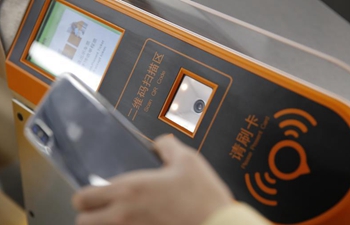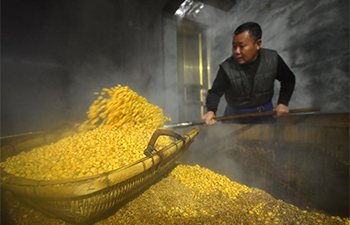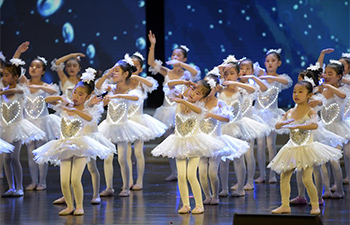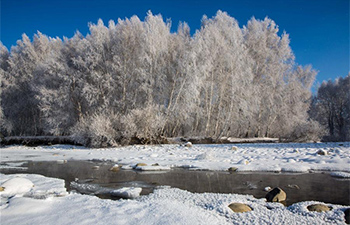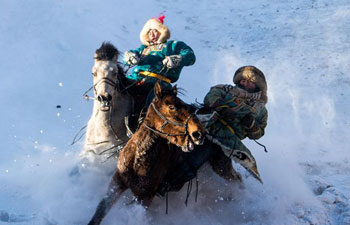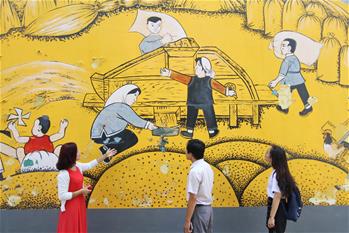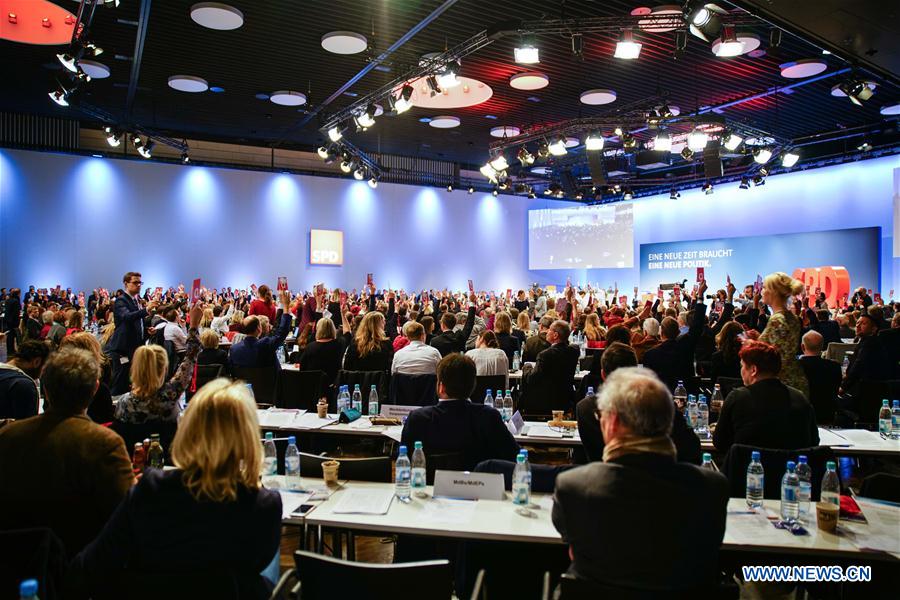
Delegates vote during a special congress of German Social Democratic Party (SPD) in Bonn, Germany, on Jan. 21, 2018. Delegates from Germany's center-left Social Democratic Party on Sunday voted in favor of formal coalition talks with Chancellor Angela Merkel-led Conservatives Union. (Xinhua/Yuan Shuai)
by Ren Ke, Yuan Shuai
BONN, Jan. 21 (Xinhua) -- Delegates from Germany's center-left Social Democratic Party (SPD) on Sunday voted in favor of formal coalition talks with Chancellor Angela Merkel-led Conservatives Union.
Among over 600 delegates attending the special congress in Bonn, 362 voted "yes" to further coalition talks with the Christian Democratic Union (CDU) and its Bavarian sister party Christian Social Union (CSU), while a total of 279 voted against it.
The "yes" and "no" votes were so close that a recount was held, as the initial show of hands was too close to be called.
The decision, which was made after confrontational and emotional debates among delegates, cleared the way to form a renewed Grand Coalition between the SPD and the Union, almost four months after the federal elections in which both of the two blocs suffered the worst turnovers since 1949.
"We are all relieved.... I am glad that we have the mandate to conduct coalition talks," SPD chairman Martin Schulz told TV channel Phoenix after the vote, saying that his next task is to reunite the party.
"Exploratory talks are not coalition results," said Schulz, who promised in the speech before the vote that although the SPD had achieved a lot in exploratory talks, they will further negotiate with the Union in a bid to make the party more visible.
Merkel responded shortly after the result, saying she "welcomed" that the SPD cleared the way for formal coalition negotiations.
"It is important for us that Germany has a stable government," said the Chancellor Sunday evening at the CDU headquarters, adding that the exploratory talks paper is the framework for negotiation, "this will also require intensive consultations."
The special congress came after the SPD and the Union reached the breakthrough on Jan. 12 in exploratory talks with a 28-page document, and the two blocs now will kick off formal coalition negotiations in a few days.
SPD's "greenlight" policy also helped Germany avoid snap elections as Merkel said a minority government would not be an option. It is widely expected that snap elections will not address the political crisis but only make the far-right populist Alternative for Germany (AfD) stronger.
Schulz said French President Emmanuel Macron had told him in a telephone conversation on Saturday that France was afraid that the far-right politics could come to power in Germany if the German government did not work with its neighbor to support the European idea.
Schulz also promoted the historic political change in German European politics, putting an end to austerity and towards a stronger common responsibility for Europe.
"For me as a convinced European, this is a historic success," emphasized Schulz. "Without the SPD, there will be no bold momentum for the future of Europe."
The tight vote difference showed that many within the SPD are opposed to the idea of a renewed "Grand Coalition," worrying that SPD would be further marginalized and dwarfed and thus suffering even worse defeat in the future.




